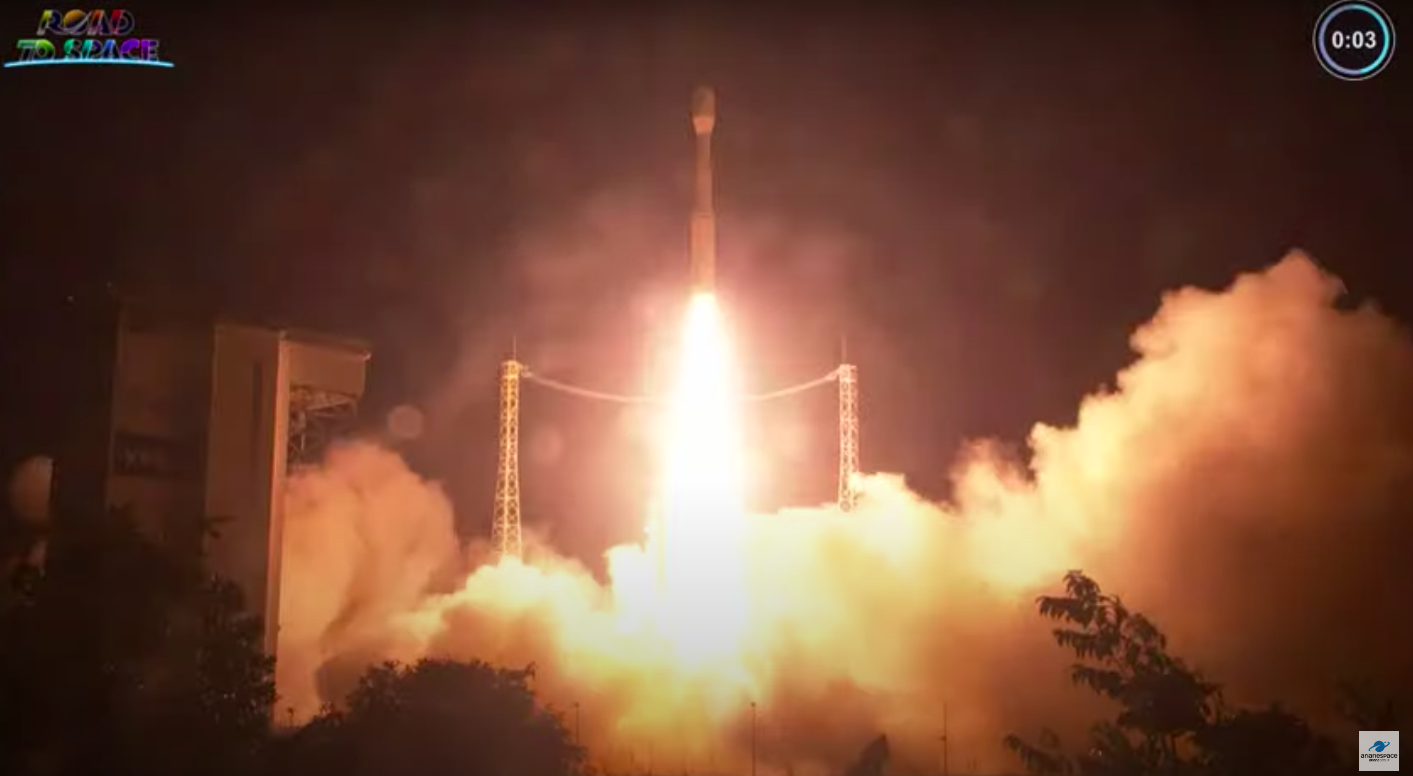Europe's Vega C rocket launch failure caused by nozzle flaw, investigators say
The Vega C failed Dec. 20, 2022 while carrying two spacecraft for Airbus' Pléiades Neo Earth-imaging constellation.

A fault in a nozzle caused the failure of the European Vega C rocket's second-ever flight, a commission concluded.
"Gradual deterioration" of the rocket nozzle — and more specifically, unexpected "overerosion" of a carbon-carbon (C-C) insert inside of the nozzle — led to the loss of Vega C on Dec. 20, an independent investigation commission said today (March 3) in a European Space Agency press release.
"The criteria used to accept the C-C throat insert were not sufficient to demonstrate its flightworthiness. The commission has therefore concluded that this specific C-C material can no longer be used for flight," the release added.
Maker Arianespace said in the release it would implement the recommendations of the commission and target another launch of Vega C for late 2023.
Related: Europe's Vega C rocket fails on 2nd-ever mission, 2 satellites lost
Vega C is a more powerful successor to the Vega, which first took flight in 2012. For comparison: Vega C can send 5,070 pounds (2,300 kilograms) of payload to a 435-mile-high (700 kilometers) sun-synchronous orbit, compared to 3,300 pounds (1,500 kg) for the older rocket, according to Arianespace.
The first stage of the 115-foot (35-meter) four-stage Vega C rocket, called P120C, worked just fine after lifting off from Europe's Spaceport in Kourou, French Guiana on Dec. 20, but the second-stage Zefiro 40 suffered the failure. Two satellites for Airbus' Pléiades Neo Earth-imaging constellation were lost in the incident.
Breaking space news, the latest updates on rocket launches, skywatching events and more!
The C-C insert on Zefiro 40 was procured by Italian company Avio in Ukraine, and the commission said investigators uncovered "a flaw in the homogeneity of the material." Avio will put in an "immediate alternative solution" with another C-C material, which ArianeGroup makes and which is also used on the original Vega's rocket nozzles (like the Zefiro 23 and the Zefiro 9.)
The loss of the Pléiades satellites on Dec. 20 delayed the completion of Airbus' Pléiades Neo Earth-imaging constellation, which operates in sun-synchronous orbit (meaning the spacecraft flies in an orbit keeping the angle of the sun consistent on the ground). The spacecraft were called Pléiades Neo 5 and Pléiades Neo 6 and together weighed 4,359 pounds (1,977 kg).
Before the December failure, Vega C completed a July 2022 flight that successfully sent aloft LARES-2, a 650-pound (295 kg) satellite developed by the Italian Space Agency, as well as six ride-along cubesats.
Elizabeth Howell is the co-author of "Why Am I Taller?" (ECW Press, 2022; with Canadian astronaut Dave Williams), a book about space medicine. Follow her on Twitter @howellspace. Follow us on Twitter @Spacedotcom or Facebook.

Elizabeth Howell (she/her), Ph.D., was a staff writer in the spaceflight channel between 2022 and 2024 specializing in Canadian space news. She was contributing writer for Space.com for 10 years from 2012 to 2024. Elizabeth's reporting includes multiple exclusives with the White House, leading world coverage about a lost-and-found space tomato on the International Space Station, witnessing five human spaceflight launches on two continents, flying parabolic, working inside a spacesuit, and participating in a simulated Mars mission. Her latest book, "Why Am I Taller?" (ECW Press, 2022) is co-written with astronaut Dave Williams.
